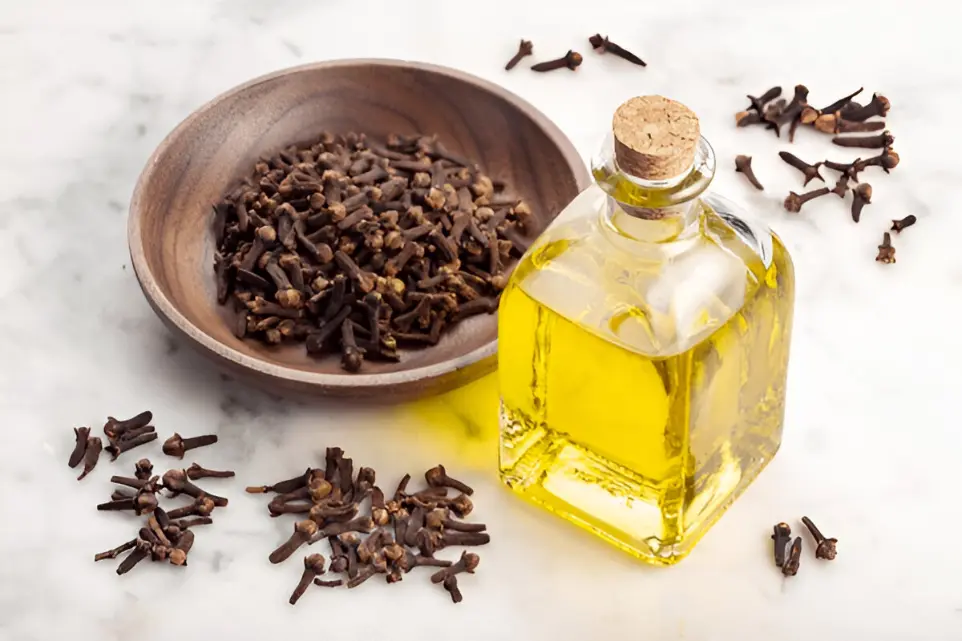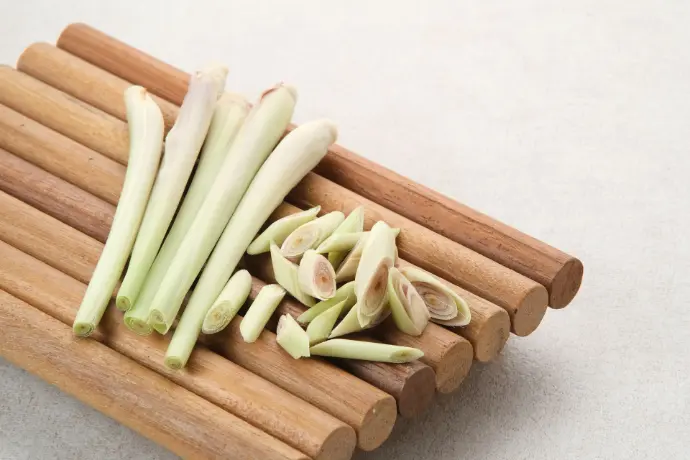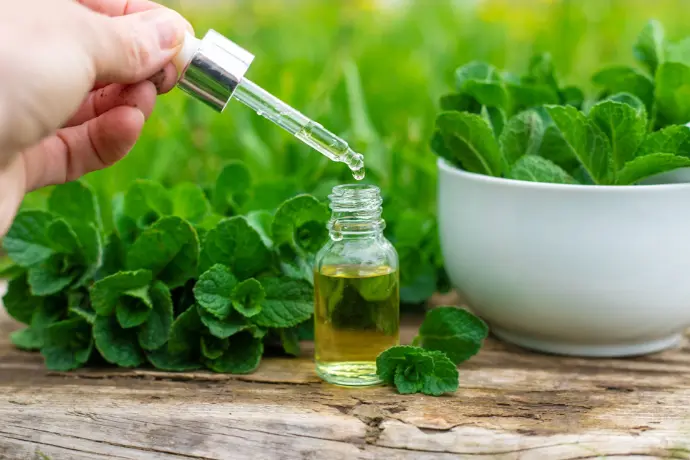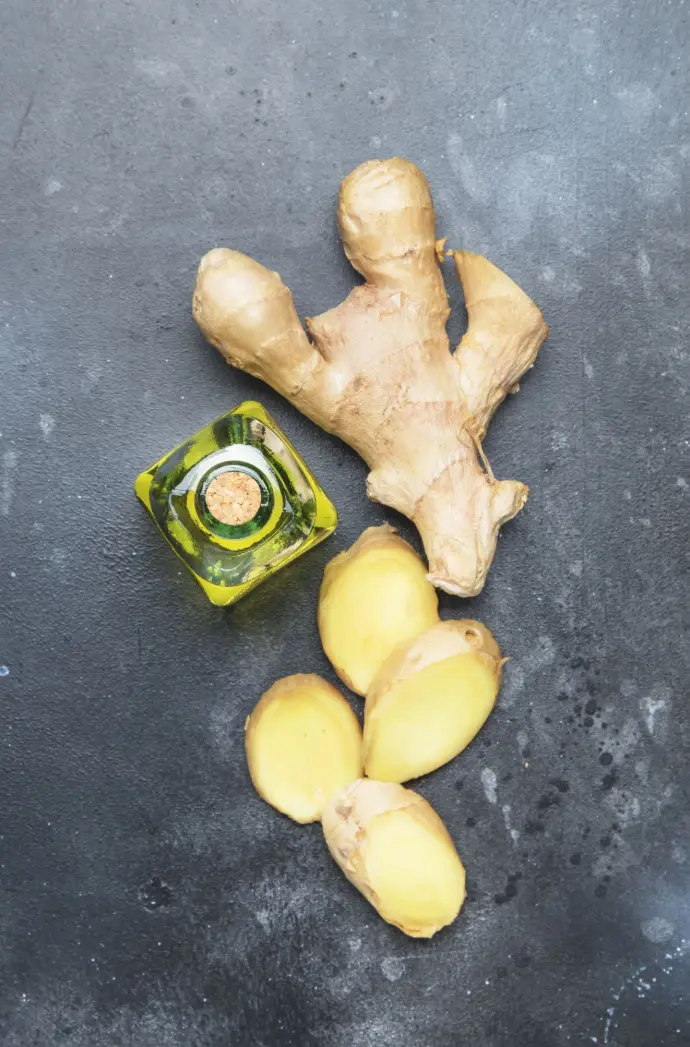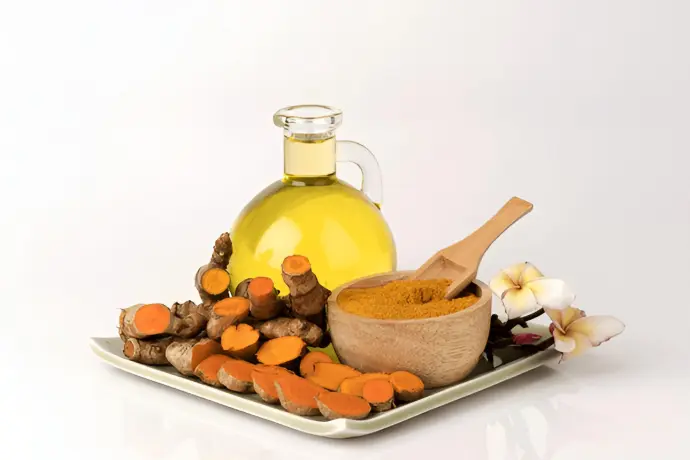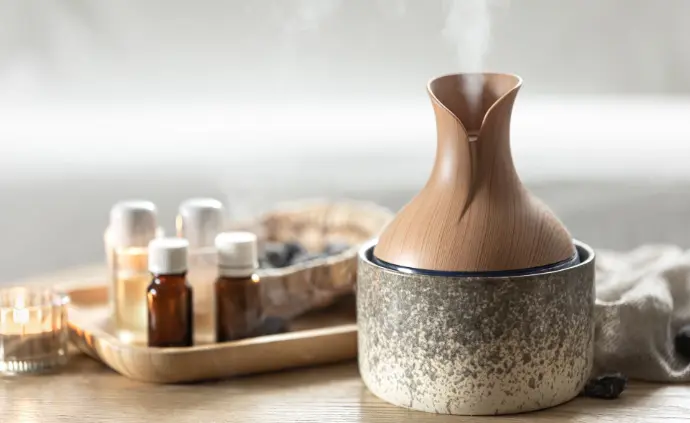About Product
Clove oil is a brown liquid produced from the flower buds of Syzygium aromaticum. To combat dreadful toothaches, clove is usually the first remedy we reach for. The warm spice is cherished for its exquisite smell and taste, in addition to a multitude of health advantages. It offers remarkable healing effects owing to its carminative and stimulant properties. The spice gained notoriety due to the production and consumption of clove cigarettes and clove cigars.
The phenolic principal ingredient Eugenin in clove is a pharmacologically active compound and relieves pain via anaesthesia. Other compounds include caryophyllene, humulene, gallotannic acid, vanillin, eugenyl acetate, etc.
Clove oil is used widely in dentistry for dry socket management as well as in toothpastes and mouthwashes. It is also used in personal care products (soaps etc.), spiced tea, flavoring for desserts and bakery goods, meat products, seasoning essential oils, and aromatherapy. Clove essential oil has good anti-inflammatory & purifying properties, making it helpful in the formulation of skin care creams & masks for acne, blemishes, and scars. Due to clove’s high antioxidant property, it is blended with other oils for anti-aging treatments. Moreover, it acts as one of the main essentials for curing digestive disorders, headaches, bacterial infections—externally like skin wounds, and internally like nausea, cough, cold, and throat infections.
Composition
- Eugenol: The primary active compound in clove oil, responsible for its strong, warm aroma and its antimicrobial, anti-inflammatory, and analgesic properties.
- Acetyleugenol: A compound that enhances the oil’s antimicrobial and anti-inflammatory benefits.
- Caryophyllene: A compound with analgesic and anti-inflammatory properties.
- Gallotannin: Known for its astringent and antimicrobial properties
Physical Characteristics
- Appearance: A pale yellow to amber liquid.
- Odor: Rich, warm, spicy, and sweet with a hint of sweetness and woodiness.
- Taste: Sharp, spicy, and slightly bitter taste, which makes it a popular addition to oral care products and culinary applications in small quantities.
Health Benefits
- Antimicrobial and Antifungal: The eugenol in clove oil has potent antibacterial, antifungal, and antiviral properties. It is effective in treating a variety of infections, including those of the skin, mouth, and respiratory system.
- Anti-inflammatory: Clove oil is known for its ability to reduce inflammation in the body. It is useful for conditions such as arthritis, muscle pain, and inflammation-related skin conditions.
- Pain Relief: Eugenol in clove oil provides natural analgesic effects, making it a popular remedy for toothaches, headaches, muscle pain, and joint discomfort.
- Digestive Health: Clove oil promotes healthy digestion by stimulating gastric juices and alleviating symptoms like nausea, bloating, and indigestion.
- Skin Health: Clove oil’s antibacterial and anti-inflammatory properties make it beneficial for treating acne, acne scars, and other skin infections.
- Respiratory Health: Clove oil is a natural expectorant, which helps clear mucus from the respiratory tract and supports healthy lung function.
- Mood Enhancement: Clove oil is used in aromatherapy for its ability to reduce stress, anxiety, and mental fatigue. It has a stimulating and uplifting effect on the mind and body.
- Clove oil is recognized as a natural anthelmintic.
- Strong anti-septic and anti-fungal properties
- Cure for headaches when combined with salt
- Good insecticide, and effective ingredient in mosquito repellants.
Key Features
- Source: Extracted from the leaves and stems of the Syzygium aromaticum plant (clove).
- Active Ingredients: Eugenol, acetyleugenol, caryophyllene, gallotannin.
- Appearance: Pale yellow to amber liquid with a rich, spicy, and warm fragrance.
- Applications: Used in culinary, oral care, skincare, hair care, wellness, and aromatherapy products.
- Health Benefits: Antimicrobial, anti-inflammatory, pain relief, digestive support, respiratory health, and skin care.
Application
Culinary Uses:
- Flavoring Agent: Anise oil is commonly used to flavor baked goods, candies, liqueurs (such as ouzo and absinthe), and savory dishes. It imparts a sweet, licorice-like taste, which makes it a popular addition to Mediterranean and Middle Eastern cuisine.
Cosmetics & Personal Care:
- Skin Care: Anise oil is used in skincare products for its antimicrobial properties, which help treat acne and other skin conditions. Its soothing qualities also make it beneficial for relieving skin irritation and inflammation.
- Hair Care: The oil is sometimes used in hair care products for its ability to promote scalp health, reduce dandruff, and stimulate hair growth.
- Massage Oil: Anise oil is used in massage blends for its ability to relieve muscle pain, cramps, and discomfort due to its anti-inflammatory and analgesic properties.
Health & Wellness:
- Digestive Health: Anise oil is commonly used to alleviate digestive issues like bloating, indigestion, and nausea. It is a traditional remedy for promoting digestion and relieving gas.
- Pain Relief: Anise oil has analgesic properties that make it effective for relieving headaches, muscle pain, and menstrual cramps. It is often used in topical formulations for this purpose.
- Respiratory Health: Anise oil can be used in steam inhalation or diffusers to help relieve coughs, bronchitis, and sinus congestion by loosening mucus and acting as a natural expectorant.
- Aromatherapy: In aromatherapy, anise oil is used for its calming and mood-lifting effects. It is commonly used to reduce stress, anxiety, and mental fatigue, while also helping to improve focus and concentration.
ALSO ACT AS A
- Flavoring Agent: Added to spice tea, other beverages and confectionaries, snacks, processed food, and bakery goods for strong flavor and aroma.
- Preservative: Acts as a natural preservative/antioxidant to inhibit lipid oxidation. Used as a preservative in some processed foods, curries, and meat products
- Therapeutic: Widely used in aromatherapy and perfumery as a warming agent. Commonly dispensed as dental pain relief medication with topical care products (soaps), toothpastes, mouthwash, skin creams and lotions marketed for personal hygiene uses. Pregnant women are particularly targeted through the marketing of skincare used during pregnancy.
- Nutritional: Aids in weight loss thermogenic processes; anti-aging; stimulates skin care; improves digestion
